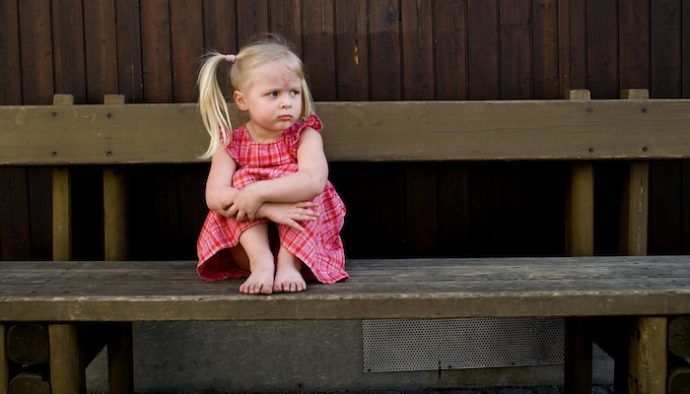Ah, summer.
A time of relaxation and rest. A season of reconnection. A couple of months of respite from the busyness of life. All that stuff is true, but that’s not to say that summer doesn’t bring its own set of challenges. Without the rigorous schedule of school and activities, it leaves us with a lot of time on our hands. And one of the things we’ve seen our kids do with their increased free time is find the most inventive ways to bother each other.
Whether it means singing the same song from the same TV show over and over again, talking in a certain kind of voice, or purposefully chewing their gum with their mouths open, they are able to find the right buttons in their siblings to push, and then they push them. And then they push them again.
I get it – I did the same thing years ago with my own brothers. For children, living in close proximity with each other, it seems one of the most precious ways to spend the summer is through making each other mad. It’s provoking each other to anger.
Kids will be kids, and all that of course – we do what we can to help our kids see that these years are fleeting and they won’t always have their brother or sister around to make angry. But what about for us as parents? We can, and often do, much the same thing, though many times unintentionally. We violate the clear parenting directive the apostle Paul gives us in Ephesians 6:4 to not “stir up anger in your children, but instead bring them up in the training and instruction of the Lord.”
It’s not that we get the same pleasure a brother gets at hearing his sister squeal in frustrated rage at the way he continues to eat his cereal. Nevertheless, we would do well to examine ourselves to make sure there aren’t latent characteristics in our lives at home that might, albeit unintentionally, be provoking our children to anger. Here, then, are three things we might be doing that contribute to anger in our children:
1. Fuel an atmosphere of comparison.
In a day of very visual and very social media, our children are going to grow up with a heightened sense of comparison. They will know how many “likes” their photo got, and how that number compares to the number someone else got. They will be able to know, at a moment’s notice, how their clothes, their scores, and their popularity measures up with others.
We as parents can easily throw gas on this dumpster fire of comparison. We do that when we either subtly or outright compare our kids to others. Statements like, “Why can’t you be more like” or “So and so’s daughter just…” are such gasoline. Comparison like this doesn’t have to come from outside the home, though – we can easily compare one of our kids to the other in terms of their intelligence, ability, or other characteristics. We can surely expect, then, that when we add to this atmosphere of comparison, our children will end up angry.
2. Assume a postion of “no.”
I wonder sometimes if my children expect to hear “no” from me more or “yes.” That’s not to say I need to adopt an attitude of permissiveness in my parenting; I don’t necessarily, and you probably don’t either. But being the helicopters that most of us in this generation tend to be, we could all probably do well with loosening our grip a little bit.
When we cling so tightly to our children, we have assumed a default posture of saying “no” to every adventure or expression of freedom they want. And, like all things that are being held so tightly, they will eventually fight back in anger. Instead, we could start to change our default posture to “yes” – that I am going to grant this request of my kid unless there is a compelling reason to say “no,” instead of adopting the attitude of denying that request unless the kid can convince me otherwise.
3. Adopt a posture of anger.
One final way that we might provoke our children to anger – and that’s by adopting a posture of anger ourselves. I don’t mean anger at our children, but instead a general cynical and disgusted attitude about everything else in life. Anger at our boss. Anger at our job. Anger at the politicians. Anger at the taxes. We are outraged about everything and everyone, constantly critical of this thing or that person – how can we not expect such an attitude to influence our own children?
Of course they are angry – because even though we might not have ever said a harsh word to them, we have spewed plenty about everyone and everything else.
Peace is a better way. Security is a better way. Love is a better way. For those of us charged with imaging the nature and character of God to those whom we hold most dear, we can trust the Lord to help us with this. We can believe He will give us the grace to love the children He has given us, to wisely release our grip on them, and to even live with confidence in a shaking world instead of anger. And then for our homes to be filled not with anger, but with the training and instruction of the Lord.
Subscribe to MichaelKelley.co
Never miss a new post. Subscribe to receive these posts in your inbox and to receive information about new discipleship resources.




